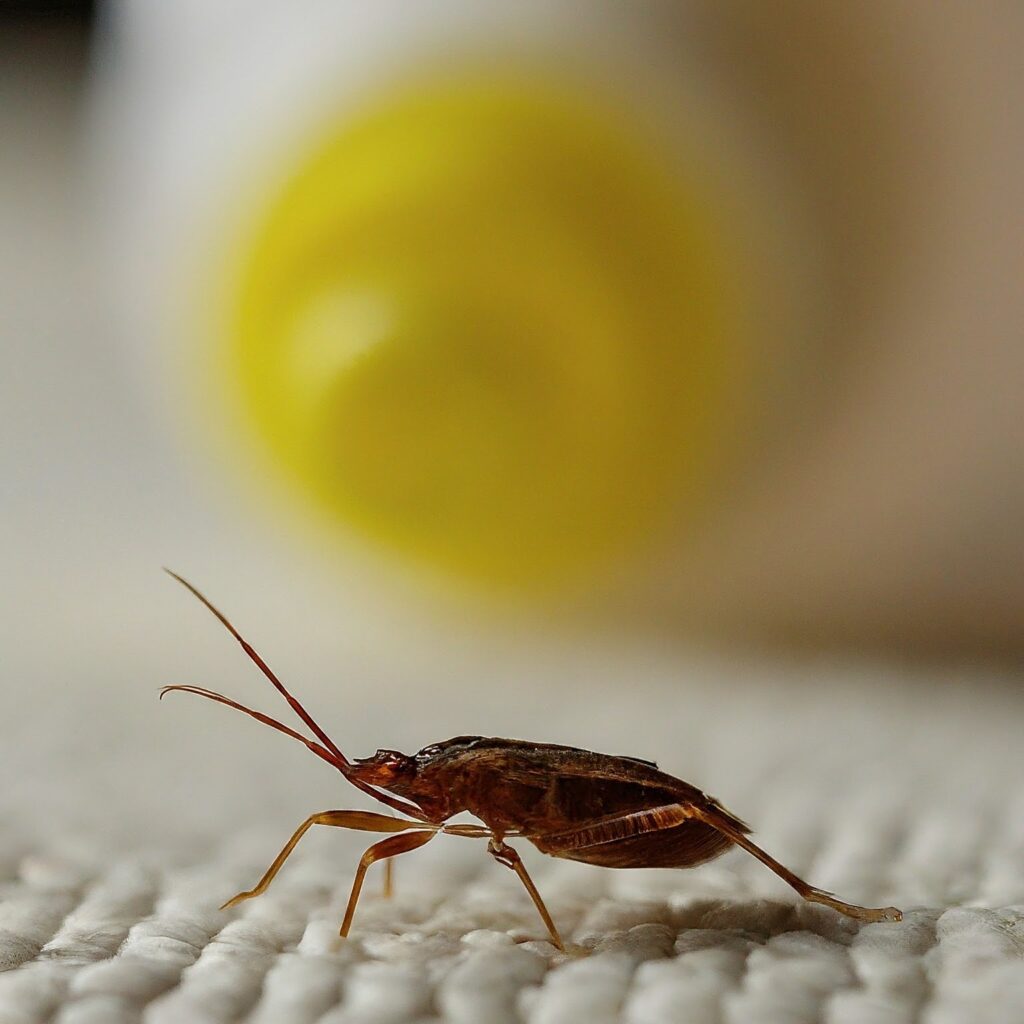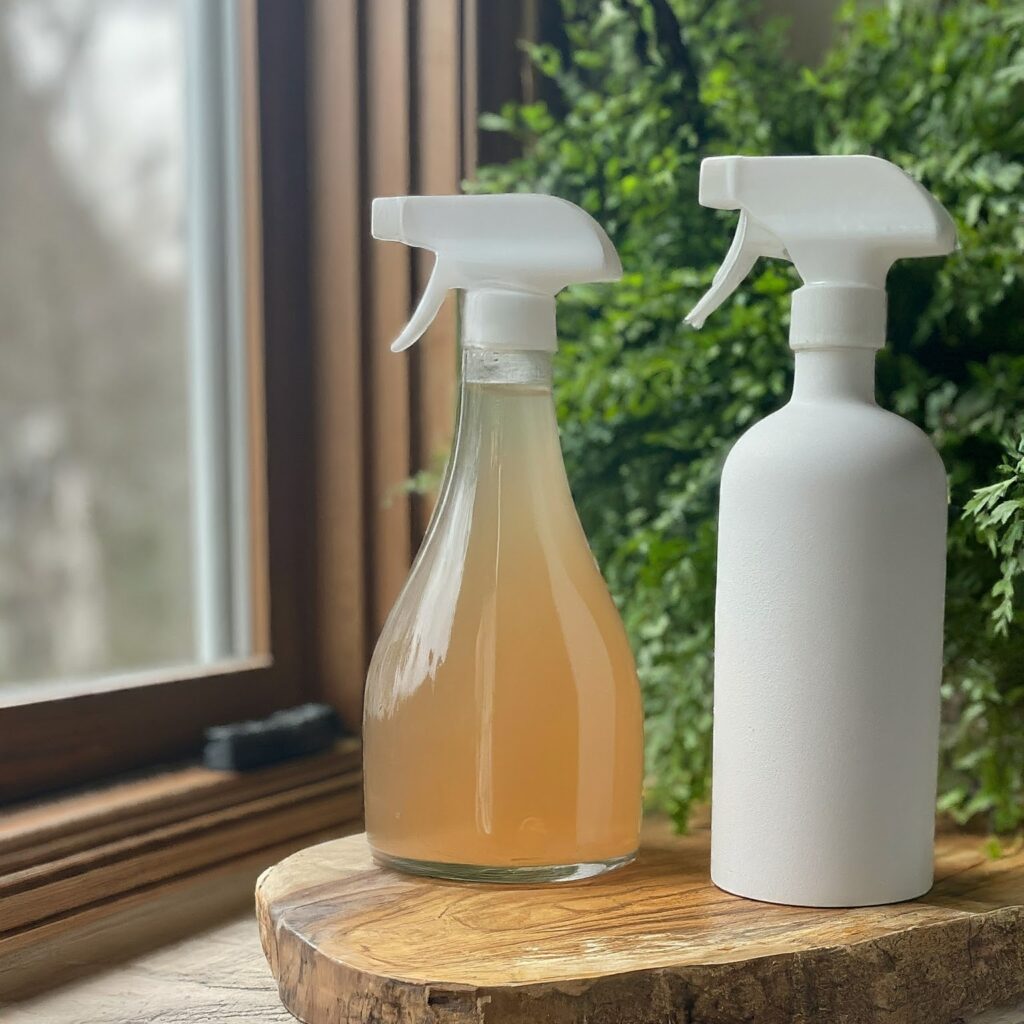At ThermoPest, we’ve heard all sorts of home remedies when it comes to tackling bed bugs. One of the more common questions we get asked is, “Can vinegar kill bed bugs?” If you’ve been scouring the internet for DIY solutions to these pests, you’ve probably seen vinegar pop up as a “miracle” remedy. But does it really work, or is it just another myth?
Let’s break it down, so you can decide whether vinegar deserves a spot in your battle plan against bed bugs – or if it’s time to call in the pros.

Why People Turn to Vinegar for Bed Bugs
First off, it’s easy to see why vinegar seems like a good idea. It’s cheap, it’s natural, and almost everyone’s got a bottle sitting in the kitchen cupboard. Plus, with so many people looking for non-toxic alternatives to chemical treatments, vinegar sounds like a perfect solution.
There’s also that satisfying “I did it myself” feeling that comes with DIY pest control. I’ve had customers tell me they’ve gone around their entire house, spraying vinegar into every corner, hoping it’ll stop bed bugs in their tracks. And hey, it might feel like you’re doing something – but is vinegar really the answer?
What Are Bed Bugs?
Before we jump into how vinegar works (or doesn’t), let’s quickly chat about what we’re dealing with. Bed bugs are tiny, brown, oval-shaped insects that feed on blood. Lovely, right? They’re expert hiders and love to nest in places like mattress seams, bed frames, and cracks in the walls. Bed bugs are also notorious travellers – you can pick them up from hotels, second-hand furniture, or even public transport. Once they’re in, they spread fast. It’s no wonder people want them gone, and fast!
How Vinegar Affects Bed Bugs
So, here’s the big question: does vinegar kill bed bugs? The short answer is yes, but with a bit of a catch. Vinegar is acidic, and when it comes into direct contact with a bed bug, it can disrupt its exoskeleton and eventually kill it.
Sounds promising, right? Well, here’s the downside. Vinegar only kills on contact. That means you’ve got to spray it directly on the bed bugs – and if you’ve ever dealt with these pests, you’ll know how good they are at hiding. So, while vinegar might kill a few stragglers, it won’t reach the bugs tucked away in your mattress or furniture.
The Limitations of Vinegar
Vinegar won’t kill bed bug eggs, which is a big issue if you’re dealing with an infestation. Even if you spray every inch of your house, those eggs will hatch, and you’ll be back to square one. It’s also worth mentioning that vinegar evaporates quickly, so its effectiveness is pretty short-lived. In other words, vinegar’s great for a quick fix but not ideal as your only weapon in the war on bed bugs.
Step-by-Step Guide to Using Vinegar on Bed Bugs
If you’re still keen to give vinegar a shot – and it can help, especially when paired with other treatments – here’s how you can do it right.
1. Where and How to Apply Vinegar
First, grab a spray bottle and fill it with white vinegar. (White vinegar tends to work best because of its higher acidity.) Focus on bed bugs hot spots like mattress seams, bed frames, and any cracks or crevices where they might be hiding. Spray directly onto the bugs you see – don’t be shy with it! Vinegar is safe to use on most surfaces, but if you’re worried about discolouration, test a small area first.
2. Precautions and Safety Measures
While vinegar is natural, you don’t want to soak everything in it. Avoid spraying it on electronics or delicate fabrics. And if you’re going for a big vinegar attack, make sure the room is well-ventilated – you don’t want to overwhelm yourself with that sharp, tangy smell.
3. Frequency of Application
You’ll probably need to reapply vinegar regularly since it only works when it’s wet and in contact with the bugs. A one-off spray won’t cut it. Bed bugs are resilient little creatures, and it’ll take persistence to make a noticeable dent using vinegar alone.
Why Vinegar Alone Isn’t Enough
Now, here’s where things get tricky. Vinegar just won’t cut it on its own. While it can kill bed bugs on contact, it’s not going to eliminate the entire problem. Think of it as a temporary fix – it might help you get rid of some bugs in the short term, but it won’t tackle the root of the infestation.
For a proper solution, you’ll want to use vinegar alongside other bed bug treatments. One popular method is heat treatment – bed bugs can’t survive high temperatures, so washing bedding on a hot cycle or using a steamer on furniture can be effective. You might also want to try vacuuming regularly, applying diatomaceous earth, or even using mattress encasements to trap any stragglers.
When to Call a Professional
If you’ve tried vinegar, heat, vacuuming, and all the tricks in the book but the bed bugs just won’t budge, it’s time to bring in the pros. Here at ThermoPest, we offer professional-grade treatments that can eliminate bed bugs – no mess, no stress. Our team uses safe, effective methods to ensure every last bug is gone, so you can get back to sleeping soundly.
Pros and Cons of Using Vinegar for Bed Bugs
Like any DIY solution, vinegar has its ups and downs. Let’s break it down.
Pros:
- Cheap and available: Chances are, you’ve already got a bottle of vinegar at home, so no need to rush out and buy expensive chemicals.
- Non-toxic: If you’re looking for a natural, safe solution that won’t harm your family or pets, vinegar ticks that box.
- Quick fix: Vinegar can be effective for killing individual bed bugs on contact, especially if you’ve just noticed a few in your home.
Cons:
- Short-term solution: Vinegar evaporates quickly and only kills bugs you spray directly. You’re not getting to the root of the problem.
- Won’t kill eggs: Eggs are a major part of a bed bug infestation, and vinegar won’t help here.
- Risk of damage: Vinegar is acidic and can damage some materials, so be careful where you spray it.
Frequently Asked Questions
Does vinegar kill bed bug eggs?
Unfortunately, no. Vinegar won’t penetrate bed bug eggs, so you’ll still have to deal with new hatchlings even after spraying.
How long does vinegar take to kill bed bugs?
Vinegar kills bed bugs on contact, so you’ll notice them dying almost immediately after being sprayed. But remember, it only works for the bugs you can see!
Can I use vinegar to prevent bed bugs?
Vinegar can act as a repellent for bed bugs in some cases, but it’s not foolproof. It’s better used as part of a treatment plan rather than a preventative measure.
Is there a specific type of vinegar that works best?
White vinegar tends to be the most effective because it has the highest acidity. Apple cider vinegar is another option, but it’s not as strong as white vinegar.

What’s the Verdict on Vinegar?
So, can vinegar kill bed bugs? Yes – but it’s not a magic cure-all. It works well for killing bugs on contact, but it won’t solve an infestation on its own. If you’ve got a minor issue and want a natural, non-toxic option, vinegar can definitely help. Just keep in mind that you’ll likely need a more comprehensive solution to fully get rid of the pests.
If you’re feeling overwhelmed or think the infestation is getting out of hand, give ThermoPest a call. We’re here to take care of those bed bugs quickly, safely, and effectively – so you can get back to a peaceful, bug-free home.

